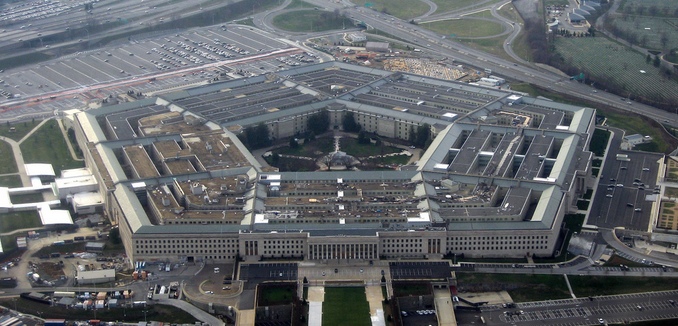Almost 200 retired U.S. generals and admirals have signed a letter strongly opposing the nuclear deal with Iran, known as the Joint Comprehensive Plan of Action (JCPOA), which will be sent to Congress in an effort to urge lawmakers to vote against the agreement, The Washington Post reported today.
A group of nearly 200 retired generals and admirals will send a letter to Congress Wednesday urging lawmakers to reject the Iran nuclear agreement, which they say threatens national security. …
The letter, addressed to Republican and Democratic leaders in the Senate and the House, is a response to one sent last week by three dozen retired senior military officers who support the nuclear deal. …
Many of the signatories served in the White House, under Democratic administrations as well as Republican. The only thing they appear to have in common is that they consider the Iran deal a threat to U.S. interests in the region and its own national security.
The Post quoted retired admiral Leon A. “Bud” Edney, who called the letter sent to Congress last week by retired military personnel who support the JCPOA “very weak.” Edney said that he developed the response letter through e-mail correspondence with his friends from the Navy and Marines, who in turn passed it along to their former military colleagues. Now, signatories include service members from every branch of the military, many of whom served in previous administrations. According to the Post, which described the response “as popular enough that people rushed to sign on,” the number of signatories “almost doubled between Tuesday afternoon and Wednesday morning.”
The letter faulted the JCPOA for not cutting off “every pathway” Iran has to develop nuclear weapons, as well as for allowing Tehran to benefit from billions in sanctions relief, which may be used to “continue to support terrorism in Israel, throughout the Middle East and globally, whether directly or through proxies.”
The agreement as constructed does not “cut off every pathway” for Iran to acquire nuclear weapons. To the contrary, it actually provides Iran with a legitimate path to doing that simply by abiding by the deal. JCPOA allows all the infrastructure the Iranians need for a nuclear bomb to be preserved and enhanced. Notably, Iran is allowed to: continue to enrich uranium; develop and test advanced centrifuges; and continue work on its Arak heavy-water plutonium reactor. Collectively, these concessions afford the Iranians, at worst, a ready breakout option and, at best, an incipient nuclear weapons capability a decade from now.
The agreement is unverifiable. Under the terms of the JCPOA and a secret side deal (to which the United States is not privy), the International Atomic Energy Agency (IAEA) will be responsible for inspections under such severe limitations as to prevent them from reliably detecting Iranian cheating. For example, if Iran and the inspectors are unable to reach an accommodation with respect to a given site, the result could be at least a 24-day delay in IAEA access. The agreement also requires inspectors to inform Iran in writing as to the basis for its concerns about an undeclared site, thus further delaying access. Most importantly, these inspections do not allow access to Iranian military facilities, the most likely location of their nuclear weapons development efforts. In the JCPOA process, there is substantial risk of U.S. intelligence being compromised, since the IAEA often relies on our sensitive data with respect to suspicious and/or prohibited activity.
While failing to assure prevention of Iran’s nuclear weapons development capabilities, the agreement provides by some estimates $150 billion dollars or more to Iran in the form of sanctions relief. As military officers, we find it unconscionable that such a windfall could be given to a regime that even the Obama administration has acknowledged will use a portion of such funds to continue to support terrorism in Israel, throughout the Middle East and globally, whether directly or through proxies. These actions will be made all the more deadly since the JCPOA will lift international embargoes on Iran’s access to advanced conventional weapons and ballistic missile technology. …
In summary, this agreement will enable Iran to become far more dangerous, render the
Mideast still more unstable and introduce new threats to American interests as well as our allies.
Earlier this month, retired general Charles Krulak, the former commandant of the Marine Corps, commented that out of the many retired officers who could have signed the letter supporting the deal, “only 30+ could be found to do so.”
A number of Iraq war veterans recently formed a group to oppose the JCPOA. Michael Pregent, the executive director of the group, Veterans Against the Deal, said, “Our main argument is that veterans know Iran better than Washington, D.C., does. You’ve got a lot of veterans out there who are pretty upset about this, so we are looking to capture their voices and make sure they are heard.”
[Photo: David B. Gleason / Flickr ]




